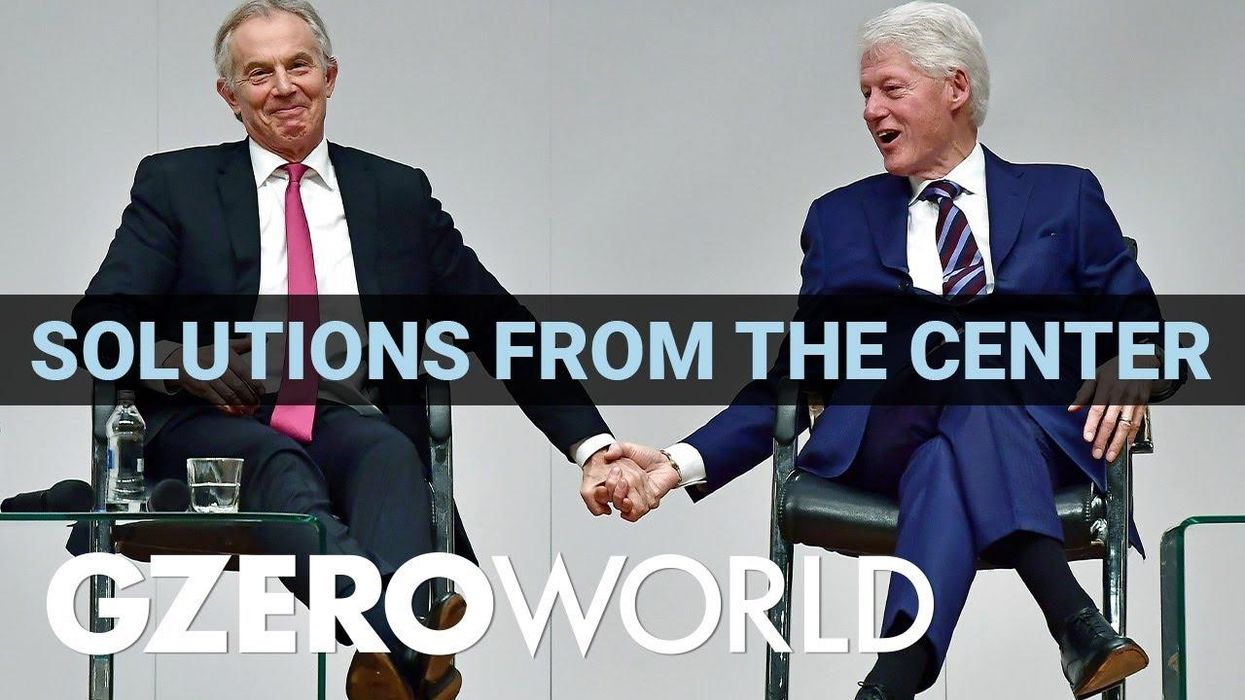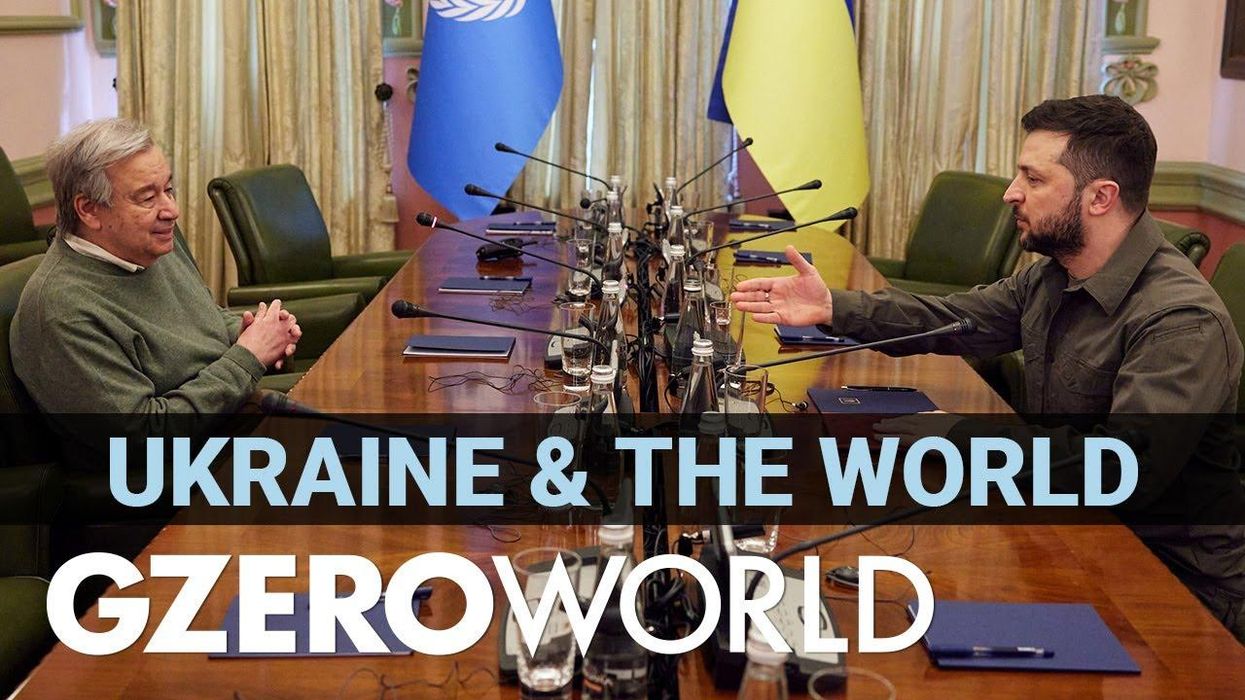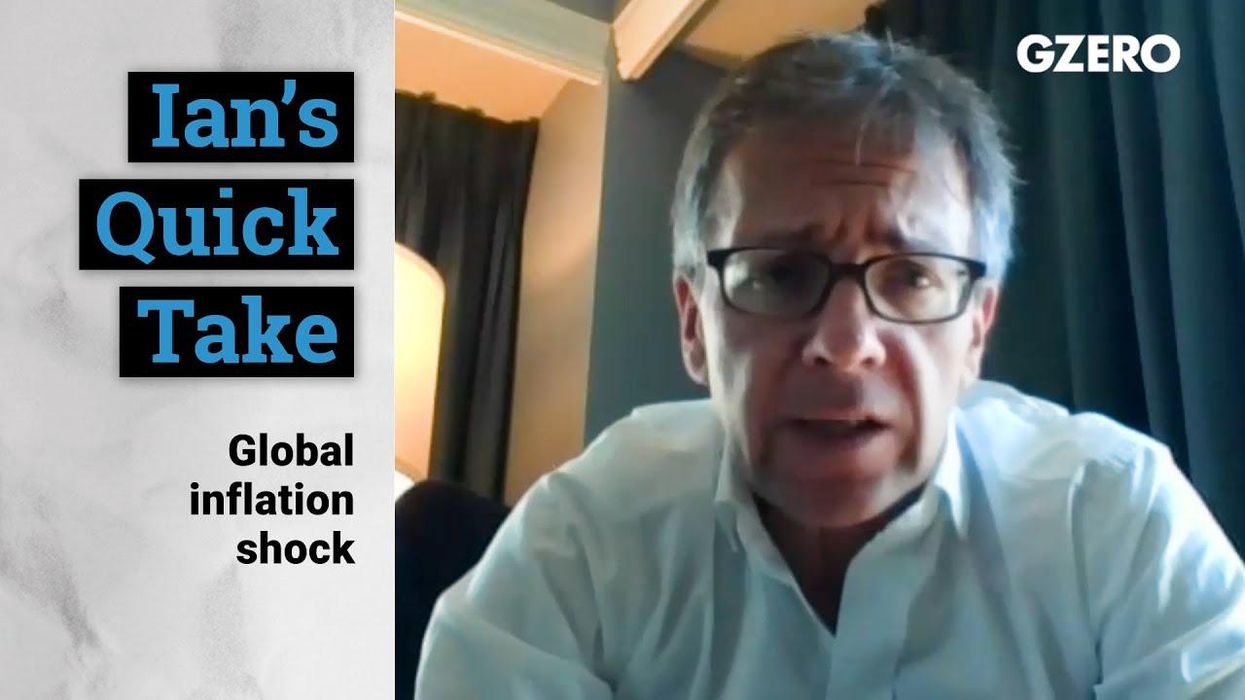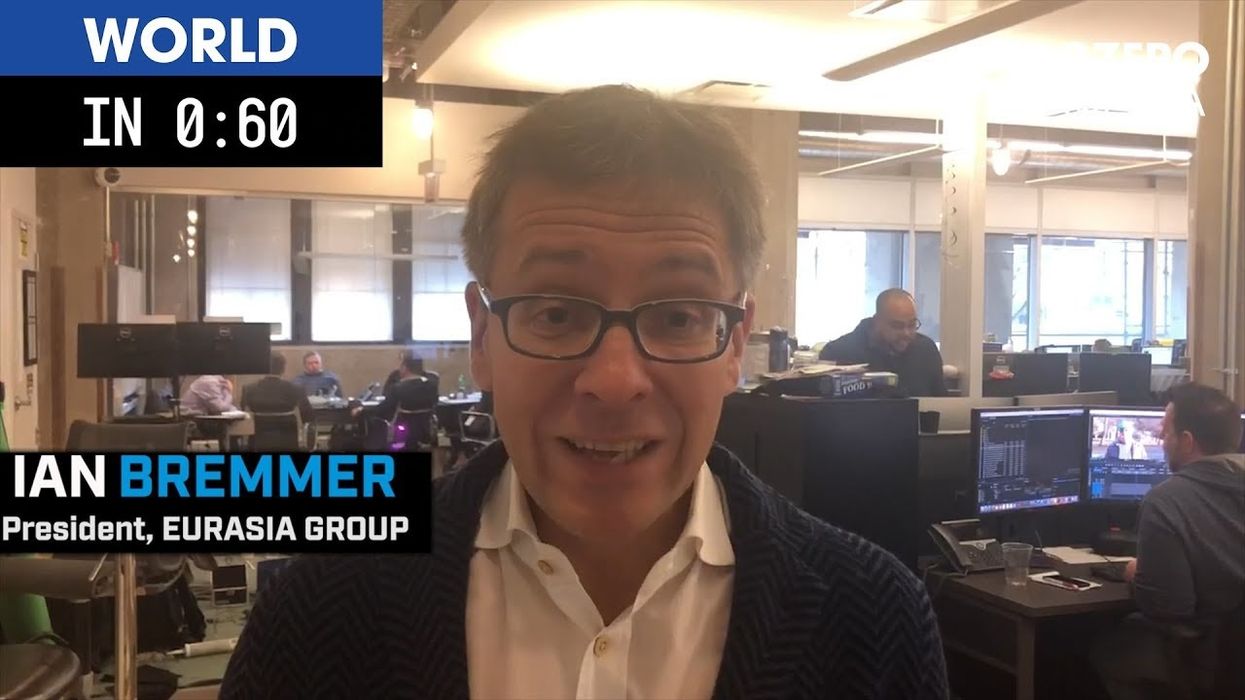GZERO World Clips
Populism vs. moderate politics
Tony Blair says three challenges will define geopolitics in the near future: the Western relationship with China, making democracy more effective, and harnessing the tech revolution. How can we address them? The former British PM — who along with then-US President Bill Clinton led the centrist "Third Way" of politics in the 1990s — says that we need to return to the center to match challenges that'll be more practical than ideological. Speaking to Ian Bremmer on GZERO World, Blair notes that populism wins when voters believe that centrism can't solve their problems.
Oct 06, 2022




